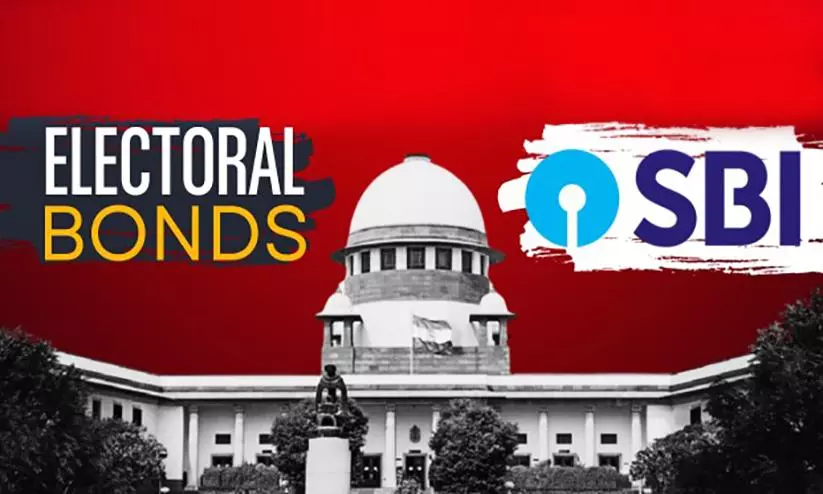
Not sharing unique codes to match who paid what to which party: SC notice to SBI
text_fieldsAmidst a plea to disclose the unique alphanumeric codes printed on each electoral bond potentially linking donors with political parties, the Supreme Court has issued an order allowing the return of electoral bond data stored with it to the Election Commission of India (ECI).
The documents released by the Election Commission lack crucial details such as serial numbers of the bonds, hindering efforts to match donors with recipient political parties effectively. Despite this limitation, the information made available by the poll panel includes dates of bond purchases and encashments, denominations, and involved entities.
The petition, presented by the Association for Democratic Reforms (ADR) and argued by prominent lawyer Prashant Bhushan, emphasized the necessity of revealing the unique bond numbers to establish a clear link between donors and beneficiary political parties. The move aims to enhance accountability and shed light on the flow of funds within the political landscape.
The backdrop of this decision lies in the recent release of data by the Election Commission, unveiling the identities of major contributors to political parties through the Electoral Bond scheme. Among the notable contributors are corporations like Vedanta Ltd, Bharti Airtel, Essel Mining Ltd, Bajaj Auto Ltd, and DLF Ltd, highlighting the significant financial influence of corporate entities in the political arena.
The disclosed data revealed a staggering total of Rs 12,156 crore donated through electoral bonds between April 1, 2019, and February 15, 2024, with nearly half of the sum originating from the top 20 donors. Notably, many of these donors operate in sectors subject to government control or regulation, raising concerns about potential conflicts of interest and undue influence.
This development follows a Supreme Court ruling on February 15, deeming the electoral bond scheme unconstitutional due to its potential to facilitate quid pro quo arrangements between donors and political parties. Consequently, the State Bank of India, the issuing authority of these bonds, was directed to provide details of bond recipients to the Election Commission.
In a subsequent plea, the State Bank of India sought an extension until June 30 to submit the data, a request dismissed by the Supreme Court, which upheld the original deadline of March 12. The bank complied with the directive, submitting information on 22,217 purchased and 22,030 redeemed electoral bonds.
Electoral bonds, introduced by the BJP-led Union government in 2018, allowed citizens and corporate entities to anonymously donate funds to political parties through interest-free bonds. While the scheme provided anonymity to donors and exempted political parties from revealing funding sources, concerns persisted regarding transparency and accountability.
In response to the Supreme Court's directives, the Election Commission moved to retrieve data on electoral bonds provided to the court in November, seeking its return to facilitate public disclosure. The court agreed, emphasizing the importance of maintaining transparency in political funding and instructed the commission to publish the data on its website.






















